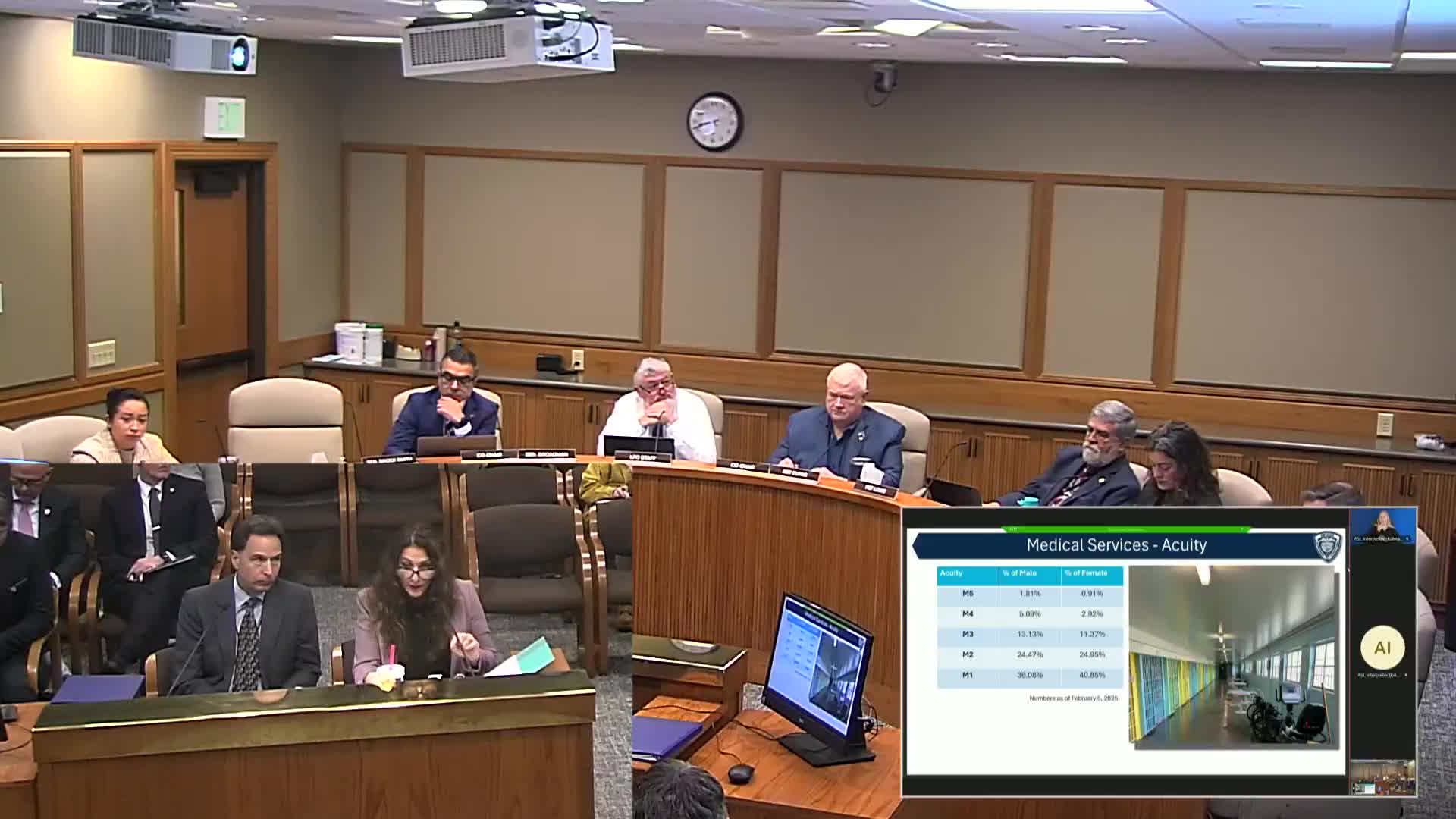DOC highlights reentry programs: college courses, pre‑apprenticeship and vocational training
March 11, 2025 | Public Safety, Ways and Means, Joint, Committees, Legislative, Oregon
This article was created by AI summarizing key points discussed. AI makes mistakes, so for full details and context, please refer to the video of the full meeting. Please report any errors so we can fix them. Report an error »

PORTLAND, Ore. — Oregon Department of Corrections officials told the Public Safety Subcommittee on March 11 that education, vocational training and reentry services have expanded in recent years, driven by the reinstatement of federal Pell eligibility and state pilot programs.
Larry Bennett, assistant director of the Correctional Services Division, highlighted a range of programs intended to improve post‑release employment and housing outcomes. He described the U Pack pre‑apprenticeship program at Coffee Creek, funded in part by Portland General Electric and run with local trade unions, and a heavy equipment operator "Land Lab" at Warner Creek run with ODOT and Baker Technical Institute.
Bennett said college participation climbed from 98 students in 2022 to more than 800 students after Pell reinstatement and a Senate Bill 1522 pilot that expanded online education at Coffee Creek and Snake River. He described the Corban University bachelor program at OSCI (sponsored by the Paid in Full nonprofit), which recently graduated its first cohort, and a braille transcription program at OSP that is expanding to Coffee Creek.
"More than 92 percent of our population will eventually release, and the average sentence is between four and five years," Bennett told the committee, describing the rationale for investing in education and transition services. He said transition funds assist with IDs, transportation, hygiene items and clothing at release, and that the department partners with OHA and community organizations on post‑release navigation and benefits enrollment.
Bennett described grant‑funded and donor programs — including parenting curricula, PCC clear clinics for record clearing, and reentry benefit coordinators funded through OHA — and said many programs rely on partnerships with nonprofits, state agencies and volunteers. He said the Visiting Services team processes about 1,500 visiting applications per month and noted partnerships with more than 500 faith volunteers statewide.
DOC officials asked the committee to consider two policy option packages: one focused on housing and reentry to secure stable housing prior to release, and another on gender‑responsive and trauma‑informed care for women at Coffee Creek.
Larry Bennett, assistant director of the Correctional Services Division, highlighted a range of programs intended to improve post‑release employment and housing outcomes. He described the U Pack pre‑apprenticeship program at Coffee Creek, funded in part by Portland General Electric and run with local trade unions, and a heavy equipment operator "Land Lab" at Warner Creek run with ODOT and Baker Technical Institute.
Bennett said college participation climbed from 98 students in 2022 to more than 800 students after Pell reinstatement and a Senate Bill 1522 pilot that expanded online education at Coffee Creek and Snake River. He described the Corban University bachelor program at OSCI (sponsored by the Paid in Full nonprofit), which recently graduated its first cohort, and a braille transcription program at OSP that is expanding to Coffee Creek.
"More than 92 percent of our population will eventually release, and the average sentence is between four and five years," Bennett told the committee, describing the rationale for investing in education and transition services. He said transition funds assist with IDs, transportation, hygiene items and clothing at release, and that the department partners with OHA and community organizations on post‑release navigation and benefits enrollment.
Bennett described grant‑funded and donor programs — including parenting curricula, PCC clear clinics for record clearing, and reentry benefit coordinators funded through OHA — and said many programs rely on partnerships with nonprofits, state agencies and volunteers. He said the Visiting Services team processes about 1,500 visiting applications per month and noted partnerships with more than 500 faith volunteers statewide.
DOC officials asked the committee to consider two policy option packages: one focused on housing and reentry to secure stable housing prior to release, and another on gender‑responsive and trauma‑informed care for women at Coffee Creek.
View full meeting
This article is based on a recent meeting—watch the full video and explore the complete transcript for deeper insights into the discussion.
View full meeting
